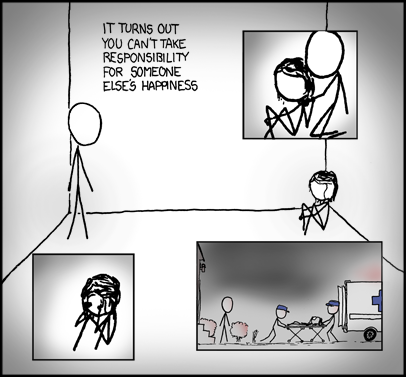A Steady Approach to Compassion
May. 22nd, 2009 08:00 amAs we strive to develop compassion for ourselves, it’s important to avoid making “letting go of desire” or “developing compassion for yourself” into new objects of compulsive desire. Becoming obsessive about quickly seeing big results from our efforts is a sign that deluded desire rather than compassion is driving our efforts. Real progress derives from honest introspection, and we cannot analyze our minds carefully when we’re hurried. Transforming our hearts is a gradual, organic process, and successfully cultivating compassion for ourselves necessitates a mature and steady approach.
–Lorne Ladner, from The Lost Art of Compassion (HarperSanFrancisco)
Tricycle's Daily Dharma for May 22, 2009
–Lorne Ladner, from The Lost Art of Compassion (HarperSanFrancisco)
Tricycle's Daily Dharma for May 22, 2009
